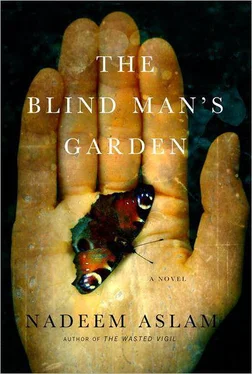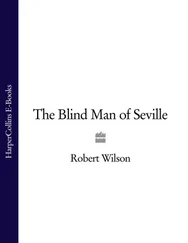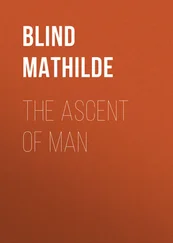The woman gave a nervous laugh. ‘I can’t remember the name. I will send him to you, you can ask him yourself.’
‘Do send him.’
The woman is now leaning towards the candlelight. She appears to be someone who knows she is having one of the most important conversations of her life. ‘I have a favour to ask of you, brother Kyra. On his application form, he has chosen not to mention that he attended Ardent Spirit. You must be aware that schools such as these have developed certain connotations of late. If the Americans discover the truth they could refuse him his university place altogether. Or they could arrest him at the airport.’
Kyra watches the shock of the boys, the glazed smile appearing on Ahmed’s face as he begins to contort the rosary tightly in his hands, his jaw muscles working.
The woman seems not to know where to rest her glance. ‘Also, with the news of his good fortune spreading in the neighbourhood, some envious person could alert the Americans to my boy’s two years at Ardent Spirit. This frightens me.’
With glacial politeness, Kyra says, ‘The aim of Ardent Spirit is to teach decency and love of Islam to the young, sister-ji. That was the case in the past, it is the case in the present, and it shall be the case in the future.’
‘Insha-Allah,’ say the boys in unison.
‘I agree, but still, brother-ji, if someone comes and asks you about it, my request is that you deny my son ever attended your school.’
‘What is more important to you, good aunt,’ Ahmed asks with a sharp indrawn breath, ‘the truth or your children?’
‘Both. I want the truth to live in my children. I don’t think I have to sacrifice either.’
‘And yet you are asking us to lie for you.’
‘I feel terrible to have come to you with this,’ the woman says, confused and distressed. ‘I am an illiterate woman, so you know better than me what is occurring in the world ever since the Jews carried out the terrorist attacks in America. You know perfectly well that there is a possibility my son could lose this golden opportunity.’ Suddenly she begins to weep, covering her face with her shawl, and is unable to speak for almost half a minute. She says eventually, ‘I have nothing but him. He must become an educated and wealthy man. He has four sisters whose dowry he has to provide for.’
Ahmed stands up and gestures towards the door. ‘Let me show you out, good aunt.’
‘My brother never wanted anything but the best for his students,’ Kyra says. ‘Why can’t your son stay and study right here in Pakistan?’
The head of Ottoman House looks at the woman with an unkillable light in his eyes. ‘Good aunt, a dollar is worth seventy-two Pakistani rupees. Do you know why? Allow me to tell you. It is because each American person loves America seventy-two times more than each Pakistani person loves Pakistan. That is why.’
‘Almost all of us are traitors,’ says the boy from Cordoba House, his head low with anguish. ‘Now, good aunt, please allow brother Ahmed to show you out. It is dark and you should be home.’
The woman wipes her tears on her shawl and gets to her feet and whispers a farewell. As the two of them leave, the other boys sit in a silence that seems more and more like a seeking. Nothing remains in the room but the truth and they see the enormity of their struggle, the light from the candle weak but undeceiving. They are all aware that across the planet words are being said about them in ten languages, sinister ungodly plans being hatched to eliminate them.
‘It’s a test,’ one of them says quietly. ‘We, our very souls, are being attacked by the West from many directions.’
‘We mustn’t lose heart,’ Kyra says. ‘Remember the anvil lasts longer than the hammer.’
Ahmed returns and takes his position in the semicircle. ‘We should begin planning the siege.’ He unfolds the paper with the two drawings and studies it carefully. He turns to the boy from Cairo House. ‘What is the latest news about Father Mede?’
‘He’s not in Heer. He has gone on his annual tour around Punjab, visiting the school’s other branches. And he is inaugurating a new branch in Faisalabad.’
‘It’s provocation,’ the head of Mecca House says. ‘I stopped one of their teachers in the street last month and told her that they need to curtail their activities, not expand the Christian school, or carry out repairs and refurbishments of the building, but she looked at me as if I wasn’t there.’
Ahmed takes a pen from his pocket and draws arrows indicating all the entrances to the school. ‘They’ll notice us,’ he says. ‘We’ll drag his and his teachers’ corpses along the Grand Trunk Road if we have to. They’ll notice us soon enough.’
The helicopter, as it brings Mikal to the American prison, is filled with the curses and prayers of the other captives. Some of them were shot as they tried to escape or resisted capture and Mikal can smell the blood, and he can tell that some of them have lost control of their bladders with fear.
His arms and legs zip-locked, a hood covering his head, he is carried out of the Chinook and the place they bring him to has the scent of the inside of a balloon. When they remove the hood he sees that he is in a tent that has white sheets of rubber insulation buttoned onto its green canvas. There are a dozen hospital beds but he is the only one here. One of the two Americans in attendance writes the number 121 on his shirt in black felt-tip pen. I am the one hundred and twenty-first prisoner here? But it is altered to 120 when a third white man comes and says something in English to the others. They had miscounted or perhaps one of the other prisoners has just died.
Getting him to open his mouth they shine beams of light into his throat and then his ears and eyes, a pair of surgical scissors cutting away the old bloodstained strips of cloth that serve as bandages for his hands. He hears the barking of dogs. Perhaps the prisoner who has just died was trying to escape. Quickly but expertly, they clean the wounds and dress them, the new bandages overlapping each other like a basket being woven, a brilliant clean white that is painful on his eye, reminding him of the snow out of which he was plucked, and then they look at the bullet wound on his neck and expose his chest to examine the blade and bullet lesions on his torso, and the medicines they apply bring an astounding reduction of the pain. He wishes to cry out at the relief.
In another room where the dogs are louder they overpower him when he refuses to accept the removal of trousers and they cut off all his clothes and as he stands there naked they bring a circular electric saw and slice the manacles off his feet, throwing jets of soft sparks along the floor and into his leg hair. He struggles in terror when they must perform a cavity search and he snarls, roaring, and they have to pin him down and afterwards they put him in a jumpsuit and lock his ankles in their own manacles, shiny and complicated as puzzles, his wrists also in chains. Where is this place? Is he still in Afghanistan? They photograph him against a height chart and then they shave his beard and hair off and photograph him again.
His head disappearing into a hood again they leave him somewhere for a short while, just a few minutes during which he falls into dead-weighted sleep, the exhaustion making each bone feel as though wrung tight as the horn of a ram, and then they come and lead him to another place. When the black hood is removed he sees that he is in a small room, no bigger than ten feet by twelve. A cabin or a booth. A large white man sits in the left corner under a poster of the Twin Towers, the moment the second plane hit, the fireball attached to the side of the building.
Читать дальше












